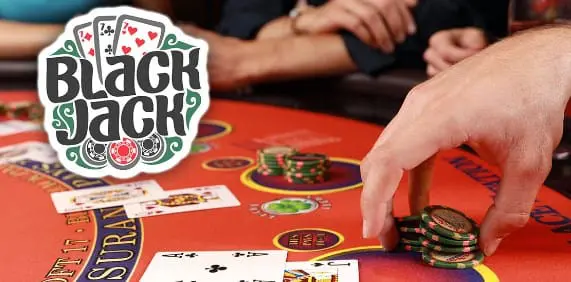Online Blackjack is a top-rated and exciting casino game. Blackjack is a card game where luck plays a significant role, but you must have a good understanding and skill about the game to win. It is essential to tell when to hit, stand, double up, and get insurance. Every decision you make can significantly impact the outcome of the game. You need to know the basics of Blackjack in order not to lose.
The Rules of the Game
Blackjack is about beating the dealer. Each player will be dealt two cards. You’ll receive both face-up cards, while the dealer will have one of the cards hidden (hidden) and the second card shown (shown). You can request more cards after you have received your cards. You can hit until you are either bust (over 21) or satisfied with your number.
You can split a pair, take out insurance, or double your bets. Once you have decided, it is up to the dealer to play. You can keep hitting until the dealer beats or goes bankrupt. You will win the game if you have a better hand than the dealer (preferably closer to 21).
After you have received your first two cards, you can opt to double up. However, you will not be permitted to receive more than one card. The dealer, however, will be allowed to keep hitting until they beat you or go bust.
You can take insurance if the dealer’s face-up card is an Ace at the start of the game. If the dealer has Blackjack, you will lose the hand. If the dealer does not have Blackjack, you can win the game with a better hand, but you will lose the insurance amount. However, the insurance policy allows you to retrieve any lost amount. Splitting is possible if you are dealing with a couple.
Once you have mastered the rules, you can begin playing the game. It’s not difficult to win if you have the right skills and enough practice.
Blackjack is a game that requires skill. There is some luck involved in Blackjack, but your chances of winning increase if you play it correctly. To play better Blackjack, you must first understand and learn the odds of winning. Card counting is one of these skills. You can also try to recall which cards you have already dealt. If you think there are more large cards in the deck, you can use this information to your advantage. The chances of the dealer winning are higher if there are more small cards in your deck.
It is essential to be knowledgeable about the different blackjack odds. There are many types of blackjack odds. Depending on the value of your current card, there are odds that your next blackjack card will give you more than 21 points. Based on the value of the dealer’s cards, there are blackjack odds that the dealer might go over 21. These blackjack odds are equally important in online and traditional casinos. Some percentages show the probability of a winning outcome based on a particular card combination (which goes beyond the scope of this article).
We will be looking at the first blackjack odds. A player with 12 points already has a 31% chance of getting the next card that will make him over 21. A player with 13 points has a 39% chance of going over 21. A player with 14 points has a 56% chance of going over 21. A player with 15 points has a 58% chance of going over 21. The probability of a player scoring 16 points is 62%. The probability rises to 69% if you have 17 points. A player with 18 points has a 77% chance of going over 21. The likelihood of going over 21 is 77% for players with 19 points. Finally, blackjack odds of going over 21 are 92% if a player has at least 20 points.
You should also know the blackjack odds of the different cards the dealer might have. The dealer will typically have one card facing up. The dealer may face up a card that is an ace or a queen if the card is an Ace. This probability is 21.43% if the dealer has a jack, queen, or king. There is a 23.34% chance that the dealer will exceed 21 if there are nine players. This probability is 23.34% if there are eight numbers. There is a 25.99% chance that the dealer will exceed 21 with 7There is a 42.08% chance that the dealer will exceed 21 with 6This probability is 42.89% if you have a 5. The blackjack odds/probabilities of going over 21 with cards with values of 4, 3, and 2 are 40.28%, 37.56%, and 35.30%, respectively.
A single player and one dealer play blackjack. A player may play up three hands. Blackjack’s objective is to beat the dealer by playing a hand of cards not exceeding 21.
Its value is the aggregate of all the cards in a hand.
- Face cards (J, Q, and K) count for 10
- Aces can be counted as either 1 or 11. The player with the highest total wins without going bust.
- All other cards are counted as having a face value
Once you place your bets, play begins. Each player and dealer will accept two cards. Both the dealer and the player receive two cards. The dealer’s first card is dealt face-down, while the dealer’s second card is dealt face-up. The upcard is the dealer’s first face-up card. The dealer’s face-down card is called the hole card. You can draw cards until you are ready to stop (stand) or until your hand reaches 21. This is called a bust. Any card with fewer than 21 cards can be hit or stood. After your turn is complete, the dealer may draw cards so long as their total is not less than 17.
Blackjack is played at CasinoUnreal.com with six decks shuffled between each round. You win instantly if the first two cards you receive total 21 (Blackjack), and the dealer doesn’t have Blackjack. If you beat the dealer’s hand, your bet is won. The dealer may bust if you don’t bust first. It is a push if you and the dealer have Blackjack.You lose your bet if you bust or the dealer has a better hand than yours. If you tie the dealer, it is called a push, and neither side wins.
You may be able to double down after you have been dealt your first two cards. You will receive one card, and your bet will be doubled. Splitting pairs will allow you to split your team, giving you two hands with your original wager. It effectively doubles your line bet. Then, you can play each hand separately, asking for cards or standing, depending on your preference. With either one or both of these indicators, you can win, lose or bust.
Insurance will be offered if the dealer’s upcard is an Ace. Insurance is a secondary bet. You are betting that the dealer will have a Blackjack. Your original wager is equal to one-half of the insurance bet. The dealer will inspect the hole card for a Blackjack. If the dealer has a Blackjack, your payout is 2 to 1. If the dealer does have Blackjack, you are delivered at 2 to 1. You lose your insurance bet if the dealer doesn’t have Blackjack. Otherwise, play will continue as usual.


